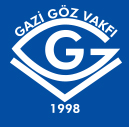2Associate Professor, MD, Okan University, Department of Ophthalmology, Istanbul, Turkey
3Ophthalmologist,, Kayseri City Hospital, Department of Cardiology, Kayseri, Turkey
4Associate Professor, MD, Kayseri City Hospital, Department of Ophthalmology, Kayseri, Turkey DOI : 10.37845/ret.vit.2022.31.3 Purpose: The aim of our study was to evaluate peripheral vascular endothelial function in patients with central retinal vein occlusion (CRVO) by measuring flow-mediated dilatation (FMD).
Materials and Methods: Our sample included 28 patients with CRVO (Group 1), 31 patients with systemic hypertension (Group 2) but no other systemic or ocular disease, and 29 age- and sex-matched healthy volunteers (Group 3). We excluded participants with diabetes mellitus, cardiovascular disease, dyslipidemia, renal dysfunction, or a smoking habit. A cardiologist assessed the responses of endothelial function in all participants by measuring the FMD following brachial artery occlusion.
Results: In Doppler measurements of the brachial artery, the brachial artery FMD value was 5.7±2.2 % in Group 1, 7.9±3.1 % in Group 2, and 15.6±7.9 % in Group 3. The arterial FMD values were significantly lower in patients with CRVO compared with healthy and hypertensive groups (p < 0.001 and p = 0.004, respectively).
Conclusion: Our findings indicate that systemic endothelial dysfunction may be associated with CRVO.
Keywords : Central retinal vein occlusion, Flow-mediated dilatation, Endothelial dysfunction




